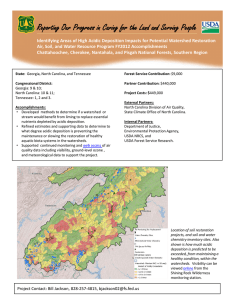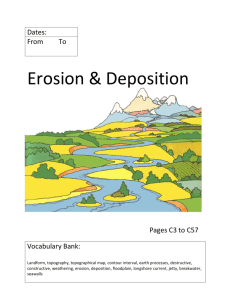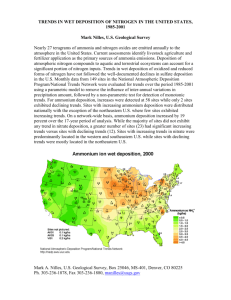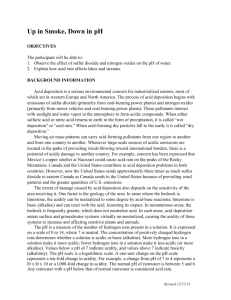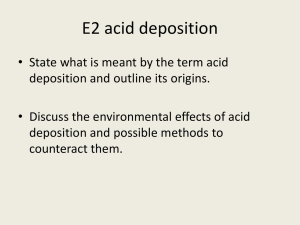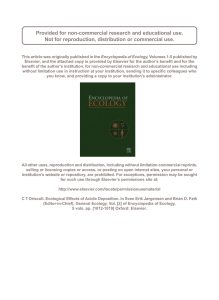Coe-ISEE04_abstract
advertisement
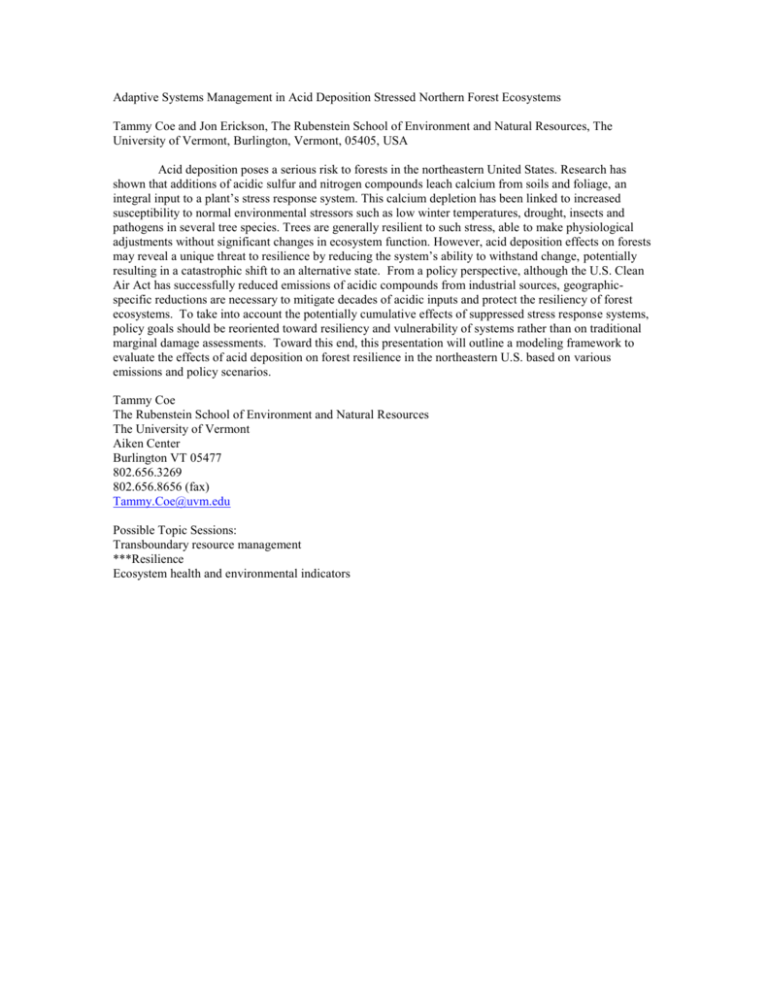
Adaptive Systems Management in Acid Deposition Stressed Northern Forest Ecosystems Tammy Coe and Jon Erickson, The Rubenstein School of Environment and Natural Resources, The University of Vermont, Burlington, Vermont, 05405, USA Acid deposition poses a serious risk to forests in the northeastern United States. Research has shown that additions of acidic sulfur and nitrogen compounds leach calcium from soils and foliage, an integral input to a plant’s stress response system. This calcium depletion has been linked to increased susceptibility to normal environmental stressors such as low winter temperatures, drought, insects and pathogens in several tree species. Trees are generally resilient to such stress, able to make physiological adjustments without significant changes in ecosystem function. However, acid deposition effects on forests may reveal a unique threat to resilience by reducing the system’s ability to withstand change, potentially resulting in a catastrophic shift to an alternative state. From a policy perspective, although the U.S. Clean Air Act has successfully reduced emissions of acidic compounds from industrial sources, geographicspecific reductions are necessary to mitigate decades of acidic inputs and protect the resiliency of forest ecosystems. To take into account the potentially cumulative effects of suppressed stress response systems, policy goals should be reoriented toward resiliency and vulnerability of systems rather than on traditional marginal damage assessments. Toward this end, this presentation will outline a modeling framework to evaluate the effects of acid deposition on forest resilience in the northeastern U.S. based on various emissions and policy scenarios. Tammy Coe The Rubenstein School of Environment and Natural Resources The University of Vermont Aiken Center Burlington VT 05477 802.656.3269 802.656.8656 (fax) Tammy.Coe@uvm.edu Possible Topic Sessions: Transboundary resource management ***Resilience Ecosystem health and environmental indicators
